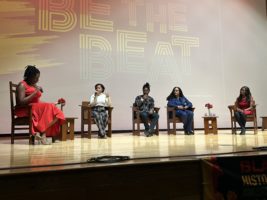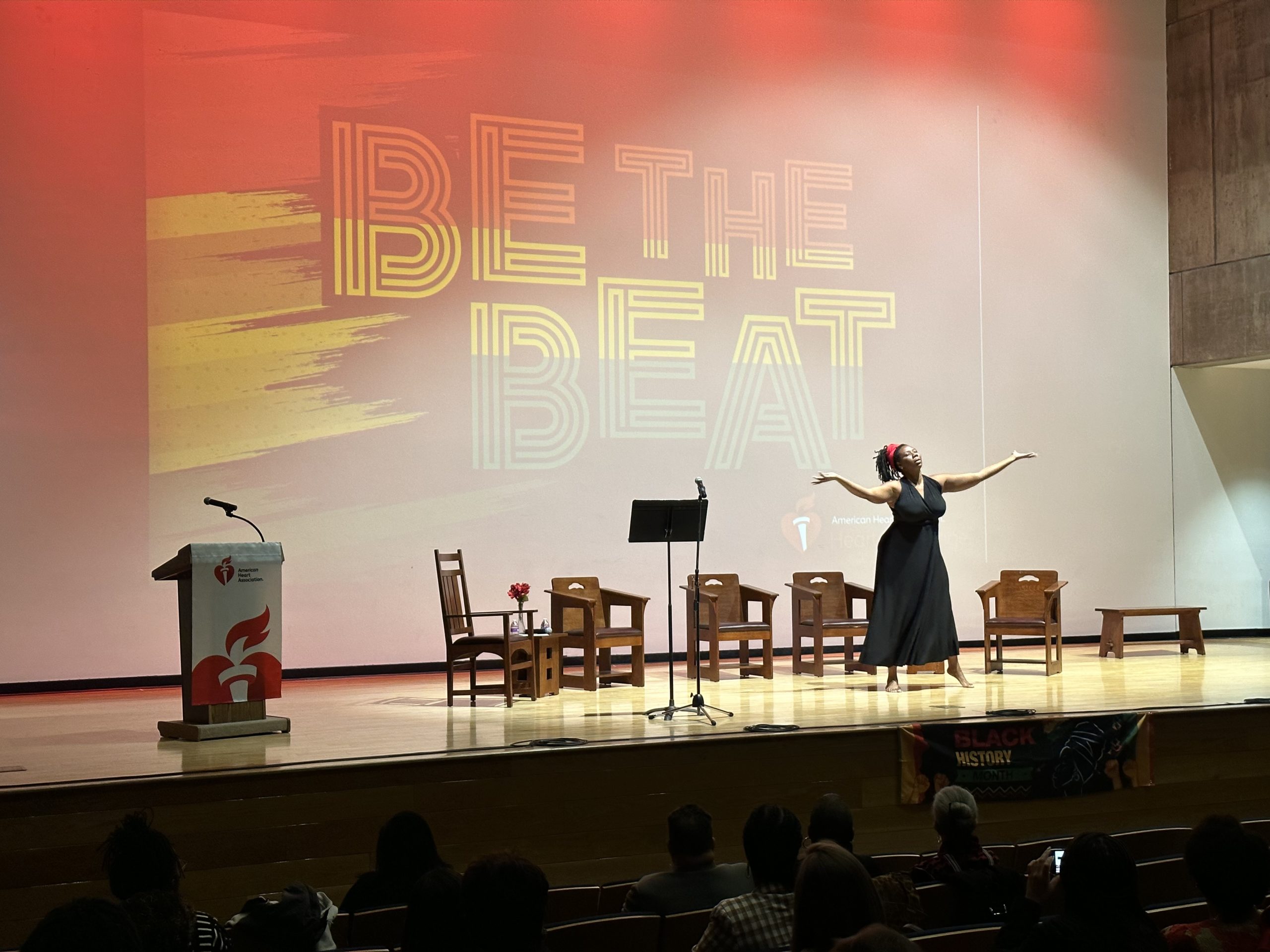Black History Month is an opportunity to honor the too-often neglected accomplishments of Black Americans in every area of endeavor throughout our history. During Black History Month and in conjunction with Heart Month, the American Heart Association is celebrating the impact Black professionals on the health of the Syracuse community.
The CommuniTEA Conversation, held Wednesday at the Everson Museum of Art in Syracuse, featured lifesaving information, inspirational artistic performances and readings, and a panel discussion with local Black health leaders.
 Panelists included Easton Davis, a doctoral student in the Cultural Foundations of Education program at Syracuse University; Dr. Tashika Gomez, DNP, PNP-C, a board-certified nurse practitioner and the owner/operator of Hippity Hop Peds House Call Service, PLLC; Rachel Johnson, owner of “Half Hood Half Holistic;” and Simone Seward, DrPH, MPH, director of the Center for Civic Engagement at Upstate Medical University. The program was emceed by Juhanna Rogers, PhD., a motivational speaker, commentator, artist, and education activist. Dr. Rogers also performed a dance and reading.
Panelists included Easton Davis, a doctoral student in the Cultural Foundations of Education program at Syracuse University; Dr. Tashika Gomez, DNP, PNP-C, a board-certified nurse practitioner and the owner/operator of Hippity Hop Peds House Call Service, PLLC; Rachel Johnson, owner of “Half Hood Half Holistic;” and Simone Seward, DrPH, MPH, director of the Center for Civic Engagement at Upstate Medical University. The program was emceed by Juhanna Rogers, PhD., a motivational speaker, commentator, artist, and education activist. Dr. Rogers also performed a dance and reading.
Cardiovascular disease is the No. 1 killer in the United States. Black Americans have the highest prevalence of cardiovascular disease. In 2017 to 2020 in the United States, 59.0% of non-Hispanic (NH) Black females and 58.9% of NH Black males had some form of cardiovascular disease. Black adults are 32% more likely to die from cardiovascular disease and 45% more likely to die of stroke.
Black Americans also have the highest incidence of cardiac arrest outside of the hospital and are significantly less likely to survive. Cardiac arrest in black neighborhoods is associated with alarmingly low treatment and survival rates and studies have shown lower rates of both bystander CPR and bystander AED use in these neighborhoods.
“We know there are health disparities, but it’s important for us to celebrate, too.” said Brittany Taylor, community impact director for the American Heart Association. “Today is about celebrating the work that’s being done to improve the health of our community.”
Every person deserves the opportunity for a full, healthy life. As champions for health equity, by 2024, the American Heart Association will advance cardiovascular health for all, including identifying and removing barriers to health care access and quality.
